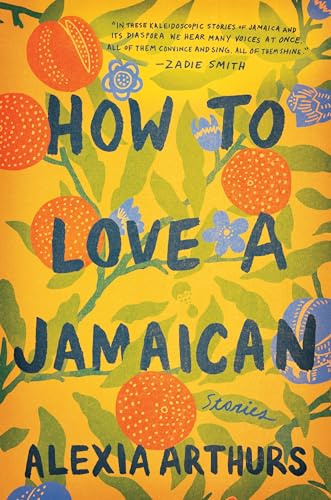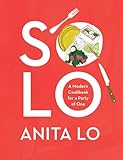

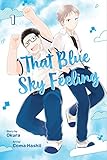 1.
1.
This year, I read a lot on my phone. That’s a habit I’ve picked up from working gigs where you stand a bunch (watching kids on a swingset, watching adult children park their cars). Some folks don’t vibe with that, but those folks don’t pay my bills, and it meant I could read in doctor’s offices and train stations and airports and noodle bars and passenger seats. I read Alexia Arthurs’s How to Love a Jamaican, Elaine Castillo’s America Is Not the Heart, Nafissa Thompson-Spires’s Heads of the Colored People, Aja Gabel’s The Ensemble, Nik Sharma’s Season, Nicole Chung’s All You Can Ever Know, Tracy K. Smith’s Wade in the Water, R.O. Kwon’s The Incendiaries, Hieu Minh Nguyen’s Not Here, Fatimah Asghar’s If They Come For Us, Katie Williams’s Tell the Machine Goodnight, Sigrid Nunez’s The Friend, Okura’s That Blue Sky Feeling, Alejandro Zambra’s Not to Read, Allegra Hyde’s Of This New World, Hiromi Kawakami’s The Nakano Thrift Shop, Anita Lo’s Solo, Kiese Laymon’s Heavy, and the re-issue of Naoki Urasawa’s 21st Century Boys.

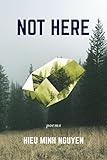
 At a few points this year, I got inexplicably sick. I had strange professional developments. I traveled and I mostly stopped smoking but I drank an aggressive amount of milk tea. I gained weight. I cried, for the first time in years, after hearing Frank Ocean’s “Moon River” cover, and then again, a few months later, over something else. I also succumbed to joy. And there was, I think, this year, a pervading numbness, which isn’t even a little bit unique, so I won’t riff too much on it, and reading definitely didn’t eliminate or even diminish that ennui, but still, books provided their own heft of equal or greater emotion, and that more or less countered the void.
At a few points this year, I got inexplicably sick. I had strange professional developments. I traveled and I mostly stopped smoking but I drank an aggressive amount of milk tea. I gained weight. I cried, for the first time in years, after hearing Frank Ocean’s “Moon River” cover, and then again, a few months later, over something else. I also succumbed to joy. And there was, I think, this year, a pervading numbness, which isn’t even a little bit unique, so I won’t riff too much on it, and reading definitely didn’t eliminate or even diminish that ennui, but still, books provided their own heft of equal or greater emotion, and that more or less countered the void.


 So I read at crosswalks. I read at the auto shop. I read in front of the cashier, waiting (praying) for my card to clear. I read Yemisi Aribisala’s Longthroat Memoirs and Jhumpa Lahiri’s In Other Words and all of the lyrics for Mitski’s “Be The Cowboy.” I mourned The Awl, for months, and read all of the remembrances. I read Jamel Brinkley’s A Lucky Man, Luís Urrea’s The House of Broken Angels, Ling Ma’s Severance, and Sayaka Murata’s Convenience Store Woman. I reread Haruki Murakami’s Sputnik Sweetheart, because I do that every year, and Valeria Luiselli’s Tell Me How It Ends, because I think I’ll start doing that every year. I reread Diego Zuñiga’s Camanchaca, Eugene Lim’s Dear Cyborgs, and all of Paul Asta’s poems. I read everything Jia Tolentino wrote, and I reread this essay by Anshuman Iddamsetty, and this one by Vinson Cunningham, and this story by Chris Gonzales, and this story by Sheung-King. I read Marjorie Liu and Sana Takeda’s Monstress, Lisa Halliday’s Asymmetry, Kate Gavino‘s Sanpaku, Toshiki Okada’s The End of the Moment We Had, Tayari Jones’s An American Marriage, Gengoroh Tagame’s My Brother’s Husband, Chris Ying’s You and I Eat the Same, Yukiko Motoya’s The Lonesome Bodybuilder, Nana Kwame Adjei-Brenyah’s Friday Black, Sohui Kim’s Korean Home Cooking, Yoko Tawada’s The Emissary, and Pitchaya Sudbanthad’s Bangkok Wakes to Rain.
So I read at crosswalks. I read at the auto shop. I read in front of the cashier, waiting (praying) for my card to clear. I read Yemisi Aribisala’s Longthroat Memoirs and Jhumpa Lahiri’s In Other Words and all of the lyrics for Mitski’s “Be The Cowboy.” I mourned The Awl, for months, and read all of the remembrances. I read Jamel Brinkley’s A Lucky Man, Luís Urrea’s The House of Broken Angels, Ling Ma’s Severance, and Sayaka Murata’s Convenience Store Woman. I reread Haruki Murakami’s Sputnik Sweetheart, because I do that every year, and Valeria Luiselli’s Tell Me How It Ends, because I think I’ll start doing that every year. I reread Diego Zuñiga’s Camanchaca, Eugene Lim’s Dear Cyborgs, and all of Paul Asta’s poems. I read everything Jia Tolentino wrote, and I reread this essay by Anshuman Iddamsetty, and this one by Vinson Cunningham, and this story by Chris Gonzales, and this story by Sheung-King. I read Marjorie Liu and Sana Takeda’s Monstress, Lisa Halliday’s Asymmetry, Kate Gavino‘s Sanpaku, Toshiki Okada’s The End of the Moment We Had, Tayari Jones’s An American Marriage, Gengoroh Tagame’s My Brother’s Husband, Chris Ying’s You and I Eat the Same, Yukiko Motoya’s The Lonesome Bodybuilder, Nana Kwame Adjei-Brenyah’s Friday Black, Sohui Kim’s Korean Home Cooking, Yoko Tawada’s The Emissary, and Pitchaya Sudbanthad’s Bangkok Wakes to Rain.

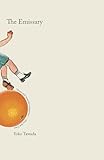
 Every last one of those got to me. I’m surely forgetting others, but I loved them all the same. And their authors will never, ever, know how much it meant.
Every last one of those got to me. I’m surely forgetting others, but I loved them all the same. And their authors will never, ever, know how much it meant.
2.
But, honestly, the main thing that stuck with me in 2018 is having read prayers. Or hopes. Whatever. I spent a good while this year in Tokyo, sort of visiting friends and sort of researching a long thing and sort of fucking around and sort of clearing my head, and a thing I did often was ride the JR line to the Meiji Shrine. It’s in Shibuya, a short walk from Harajuku Station, by this big-ass Gap and an Adidas. In the afternoons, a guy played the Hang in front of the shrine’s arches. When you walked through the gravel, past the barrels of sake, after you’d stepped under the shrine’s pillars, you could sort of amble your way to the arches, and that’s where plenty of people, from all over, left notes on votive tablets beneath an overflowing tree:
I pray my boyfriend’s parents accept me
Hopefully she comes home this year
I pray that the new job brings in enough money for the operation
This year I hope that she finds peace
I pray that his death brings us together
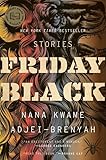
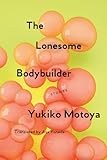
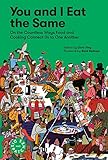 Stuff like that. Deeply personal things, like you’d find in a diary or a post-it stack. Some had smiley faces and cartoons. Others were written in cursive. I spotted French and English and Hiragana and Hangul and Spanish and Chinese and Arabic, and they all hung together, tied to their altar with string, sort of shaking in the wind, and if you sneezed they’d shift a bit before settling back into place.
Stuff like that. Deeply personal things, like you’d find in a diary or a post-it stack. Some had smiley faces and cartoons. Others were written in cursive. I spotted French and English and Hiragana and Hangul and Spanish and Chinese and Arabic, and they all hung together, tied to their altar with string, sort of shaking in the wind, and if you sneezed they’d shift a bit before settling back into place.
Most afternoons, I rode the train from my place to see them. It took about 20 minutes. This year began with the absence of hope, and every week that’s passed seems to have added to that refrain, but folks had still taken—had actually bought, with currency earned by their labor—these little hunks of wood, and then they’d written down their hopes and dreams and wants, despite everything. Despite the world. That’s a little radical, when you think about it. That’s a lot of beautiful, when you think about it.
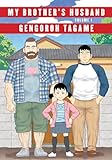
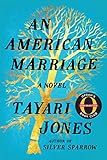
 And, in a lot of ways, I think the books I read in 2018 elicited a similar emotion. No one asks us to write. There’s no assurance that anyone will see what we put down. If your advance is big enough, or the publication is halfway decent at social media, or your publicity team is swift enough, or if you’re young and white and you catch a wave then maybe they will. But they probably won’t. And we hang these words up anyway, because we have to, and we hope that someone will see them, although most of us will never know if they do, so they’ll just carry them around in their heads, the same way we will, and that’s how we’ll build a life together, just tacking up prayers.
And, in a lot of ways, I think the books I read in 2018 elicited a similar emotion. No one asks us to write. There’s no assurance that anyone will see what we put down. If your advance is big enough, or the publication is halfway decent at social media, or your publicity team is swift enough, or if you’re young and white and you catch a wave then maybe they will. But they probably won’t. And we hang these words up anyway, because we have to, and we hope that someone will see them, although most of us will never know if they do, so they’ll just carry them around in their heads, the same way we will, and that’s how we’ll build a life together, just tacking up prayers.
But anyway. I’ve thought of those notes often. I hope some of them came true.
More from A Year in Reading 2018
Don’t miss: A Year in Reading 2017, 2016, 2015, 2014, 2013, 2012, 2011, 2010, 2009, 2008, 2007, 2006, 2005
